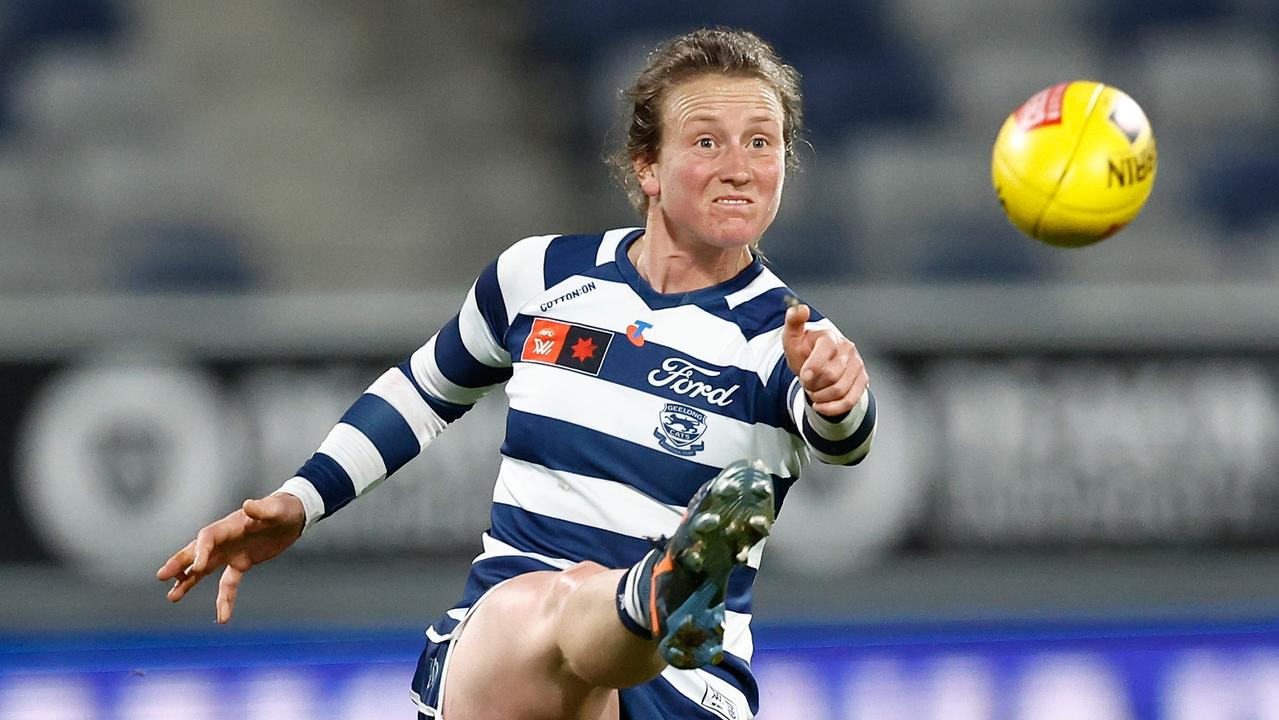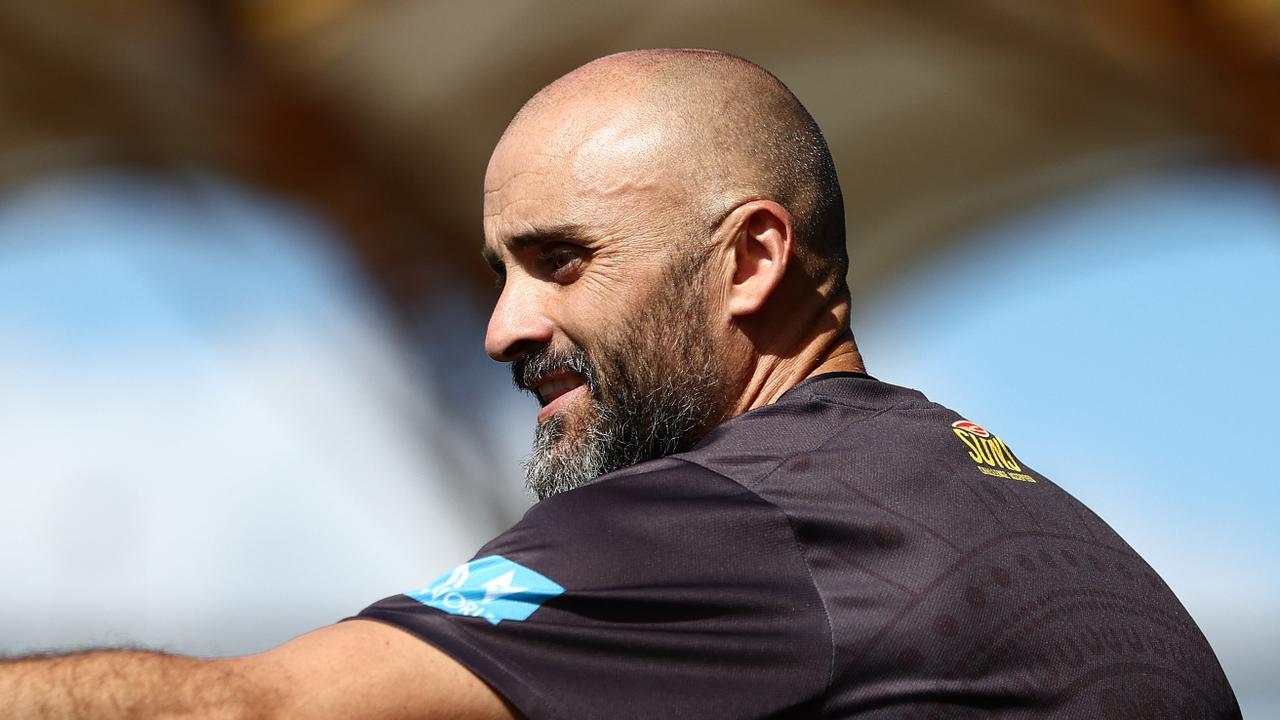Future of footy: AFLW boss Nicole Livingston has eye on the ball
THE AFL’s newly appointed head of women’s footy has been thrown in the deep end — so it’s a good thing she knows how to swim. Nicole Livingston may be a former swimming champ, but when it comes to AFLW, she has her eye on the ball.
AFLW
Don't miss out on the headlines from AFLW. Followed categories will be added to My News.
THE AFL’s newly appointed head of women’s football has been thrown in the deep end. It’s a good thing she knows how to swim.
Nicole Livingstone, three-time Olympic swimming medallist, respected sports administrator and trailblazing sports commentator, has been charged with the responsibility of managing the NAB AFL Women’s competition as it expands towards a 14-team league in 2020, as well as growing female football participation around the country.
With less than three months in the chair before the second season of AFLW, Livingstone, 46, admits her “head is still spinning”.
AFLW STARS GO RETRO FOR NAB HISTORY IN THE MAKING CAMPAIGN
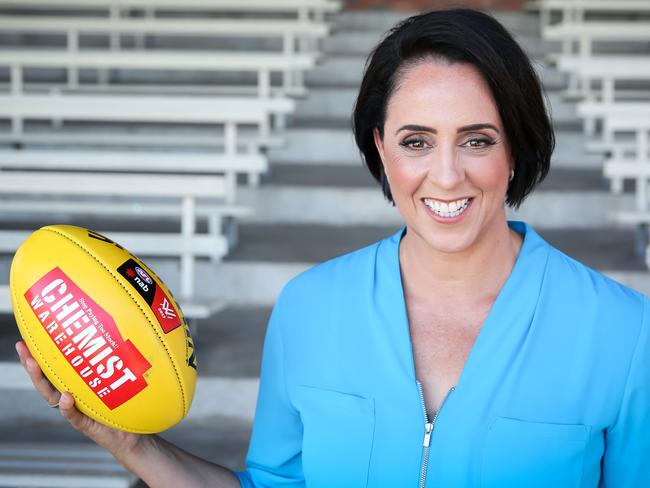
And her to-do list is long: enlist the support of corporate Australia and attract more strategic sponsors to make AFLW commercially viable; turbocharge the grassroots game and make it conducive to community building; introduce new rules and career pathways; expand on game-day fan experiences; and learn every player’s name.
“I have joked to Gil (AFL CEO Gillon McLachlan) that this job description has everything in it except the wood chop,” Livingstone jokes.
“AFLW is just part of my role; it’s actually about looking at the complete picture — and while the showcase of that complete picture is those eight weeks of AFLW, for the rest of the time, I need to start getting my head around the landscape of what Australian rules football looks like for women in this country.”
AFL WOMEN’S CHIEFS CLOSELY MONITORING A GAME-CHANGING OUT OF BOUNDS RULE
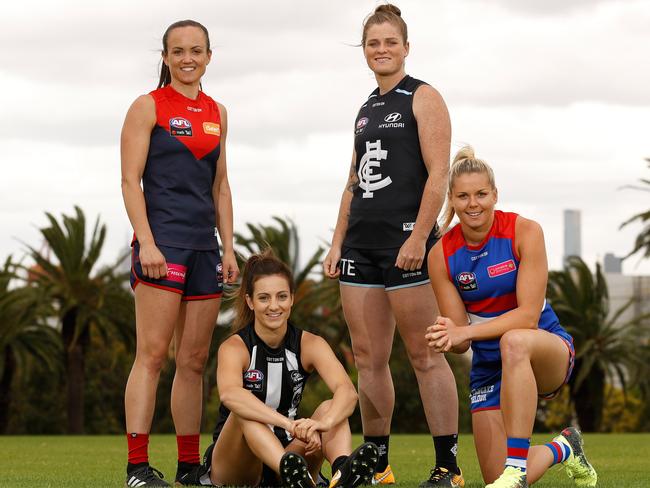
Since AFLW elbowed its way into public consciousness last year with its history-making inaugural season, drawing a crowd of more than 24,000 for its first game, a 145-player draft and a hotly contested grand final, it has ignited interest and generated a groundswell of support.
The number of women’s football teams has increased by 76 per cent, with more than 460,000 women and girls now playing some form of Aussie rules football nationally. This means women now make up 30 per cent of the overall participation figures of Aussie rules, after just one season in the limelight.
But Livingstone is conscious of the downfalls if the sport grows too quickly, particularly at grassroots level.
“In Victoria, which is a very mature market compared to other states, the numbers have been so great for girls flocking to their local club,” Livingstone says.
“We need to ensure that the experience they have at the grassroots level is a good experience so that they come back year after year and then eventually we get to the stage that the girls we are seeing at clubs now will eventually bring their daughters to play football.
“When it comes to the high performance side of things, the broader the base, the taller the pyramid.”
MELBOURNE AND DAISY PEARCE BACKED BY AFLW CAPTAINS TO DOMINATE 2018 SEASON
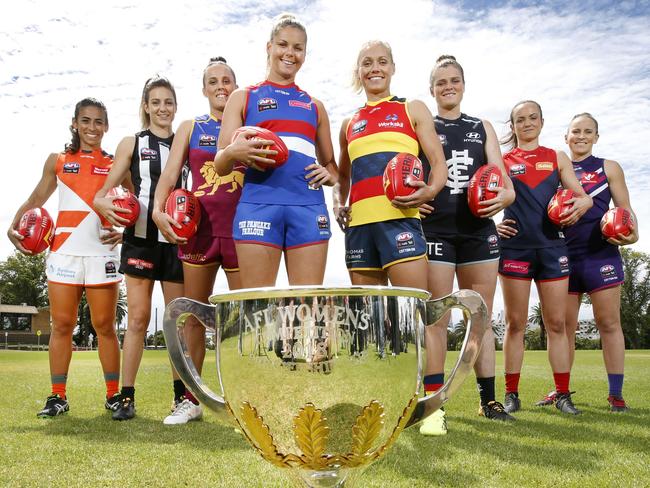
It is obvious Livingstone has boundless enthusiasm for the role, though it is important to note that unlike some other sporting CEOs, including Raelene Castle who took up her post as Rugby Australia CEO in December, Livingstone hasn’t inherited a broken toy.
Instead, she has the giddy privilege of being able to play with a sparkly new one that, really, has only just been taken out of the box.
Like a kid on Christmas morning, this is Livingstone’s opportunity to build the game right so others can play for generations to come. And you get the impression she is, rightly so, rather excited by that possibility.
Her years of slick media training alone cannot account for her lack of pauses, umms or ahhs between answers, particularly when it comes to her passion and vision for the game beyond the footy field.
“The thing that excites me most would have to be the opportunity to change the landscape of Australia,” she says.
“I know that sounds like a pretty big, broad statement, and very aspirational, but if we can change attitudes towards women and the acceptance and opinions of women at a football club level then we can change society.
“Prevention of violence against families is a hugely important thing for me.”
ROUND 1: WHAT YOU NEED TO KNOW ABOUT AFLW02
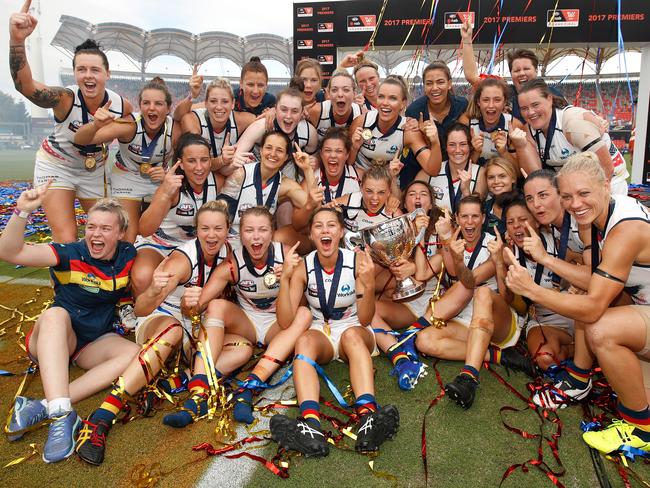
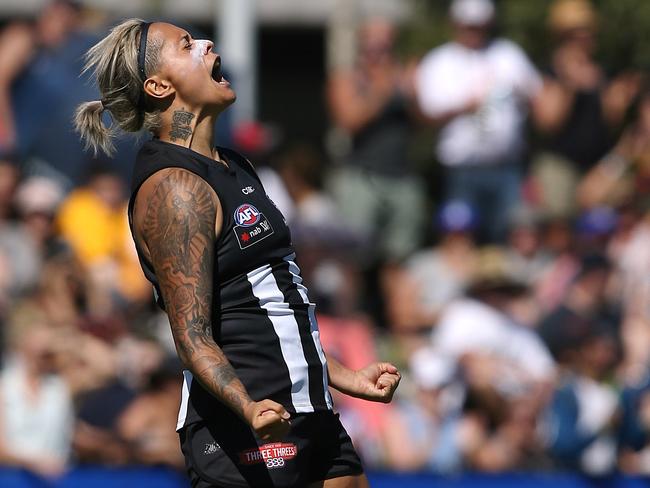
With the game’s heightened visibility has also come something less quantifiable: the sense among ordinary women and girls that we have a new generation of role models.
“We have been seeing these wheels in motion for a little while now with women’s sport,” Livingstone says.
“And even though I came through a generation when we had really strong females as well, and we’ve always had powerful, character-filled women throughout our history of sport, we are in this environment now where it’s actually got some traction and people are starting to recognise that female athletes have amazing ability.
“I think AFLW season one was a defining moment for female sport. People suddenly realised that we can do anything that guys do and I think that was really important for all of us.
“But I did speak to the girls because one of the things I fear is that they feel like the weight is on their shoulders to change the world and I just said, ‘What I want you to be focusing on is not changing the world, but being the best athletes you can be and seizing the opportunity that you have’.
“I think the change will happen, we just need to be patient, and ensure we continue to move forward in the right direction.”
NEW BLUE TAYLA HARRIS MAKES HER OWN LUCK WITH CLEAN SLATE AT CARLTON
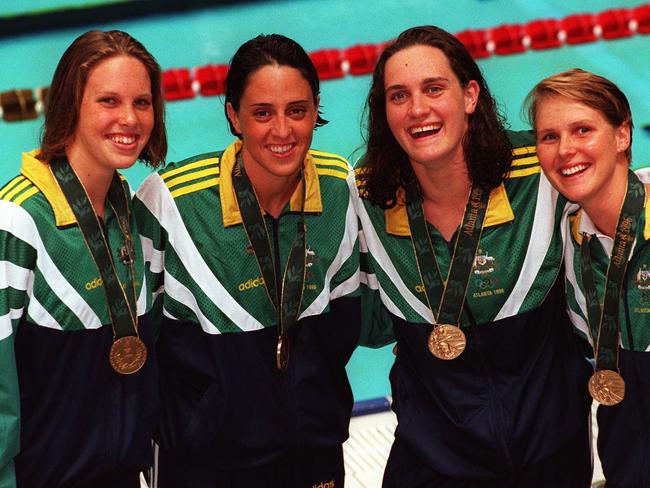
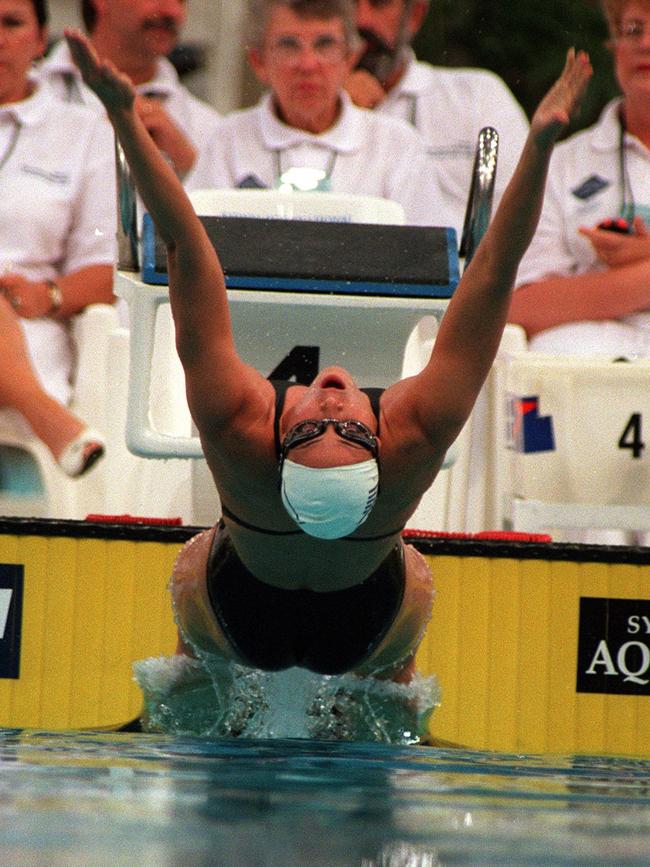
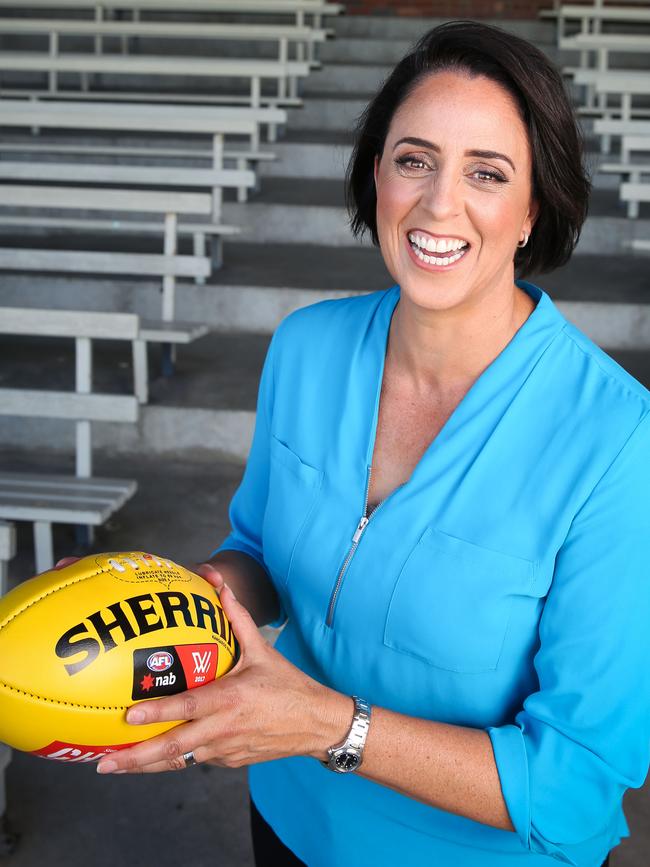
Livingstone was just 13 when she first competed at the Commonwealth Games. The champion backstroker represented Australia at the 1988, 1992 and 1996 Olympics, winning bronze in the 200m backstroke at the ’92 Barcelona Games in addition to a relay silver and bronze four years later in Atlanta.
A six-time Commonwealth Games gold medallist, she has been an expert commentator and host for Nine’s Wide World of Sports, Network Ten and the ABC and has sat on several boards, including the Sports Australia Hall of Fame, Swimming Australia, the AOC and VicHealth.
Industry insiders have suggested a “Melbourne Cup-sized field” was in the running to land the AFLW CEO role, but there is no denying Livingstone has a pretty impressive curriculum vitae in the field of elite women’s sport and sports administration. She admits the role has made her reflect on her career.
“It’s what I did for 16 years, being a professional female athlete; professional in the sense that I lived and breathed it and was as totally professional as I could be for performances, but semi-professional in the sense that we weren’t paid,” she says.
AFL HINTS AT SECOND CONSECUTIVE AFLW SEASON-OPENER LOCKOUT
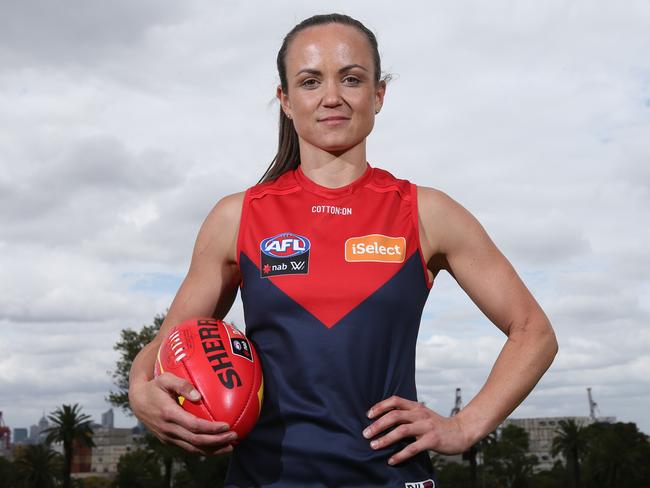
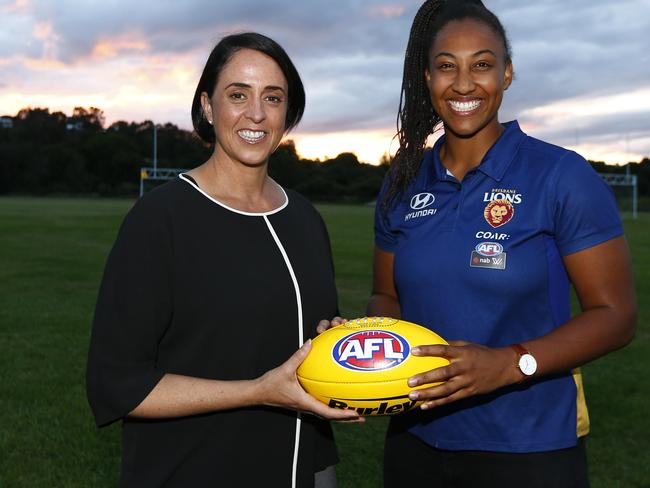
Livingstone is also no stranger to tackling uncharted waters for women.
“Since hosting Wide World of Sports in the ’90s, I’ve always been surrounded by men in my 25 years of paid employment in the media. And I was one of the first females in the Carbine Club in Victoria as well — myself and (Richmond Football Club president) Peggy O’Neal together,” she says proudly of joining the once-staunchly male-only club.
“For their traditional grand final lunch in September I organised a table of really strong powerful women. So I think it’s certainly evolving and hopefully there will be some more females that become involved.”
The mother of three hasn’t only been smashing down hurdles for women in the sporting arena, but in the medical field too.
Following the loss of her mother Elsie to ovarian cancer in 2001, Livingstone, along with sister Karen, founded Ovarian Cancer Australia, a charity focused on raising awareness of gynaecological cancers, empowering women to get tested and funding medical research.
Livingstone’s aunt also died from ovarian cancer.
“Mum asked for some blood to be put away before she died so that my sister and I were able to be tested for BRCA and BRCA2, the gene which makes you more susceptible to ovarian cancer,” Livingstone says.
“We both tested positive, and one of the gifts of Mum’s blood was that I got access to a wonderful team of doctors and specialists who were able to give me a plan forward as to what I needed to do.”
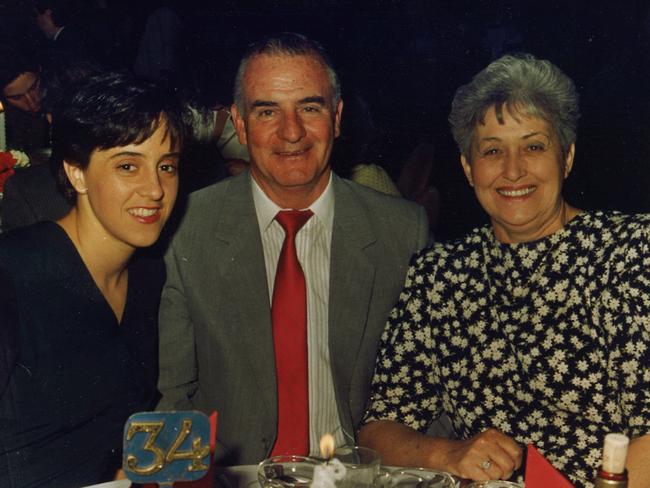
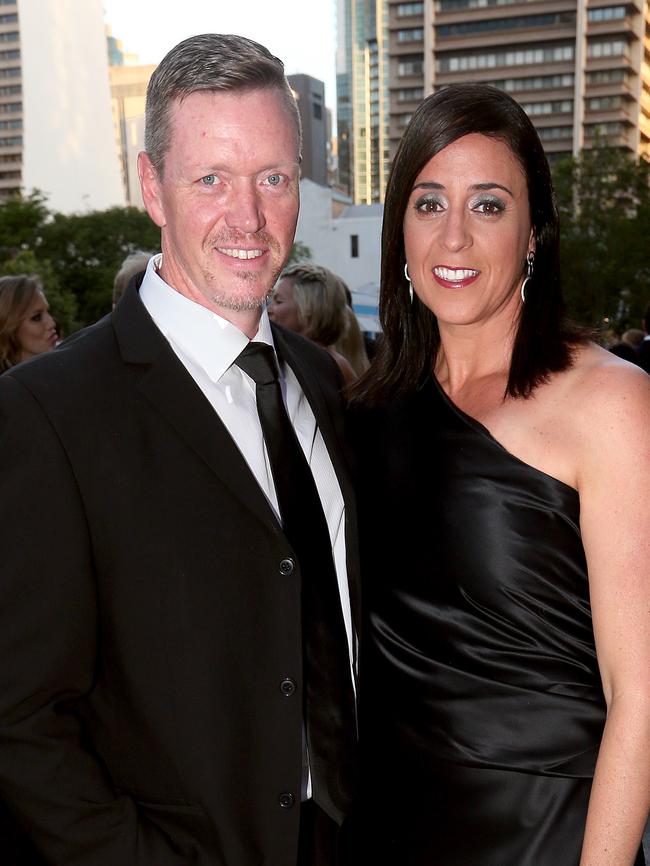
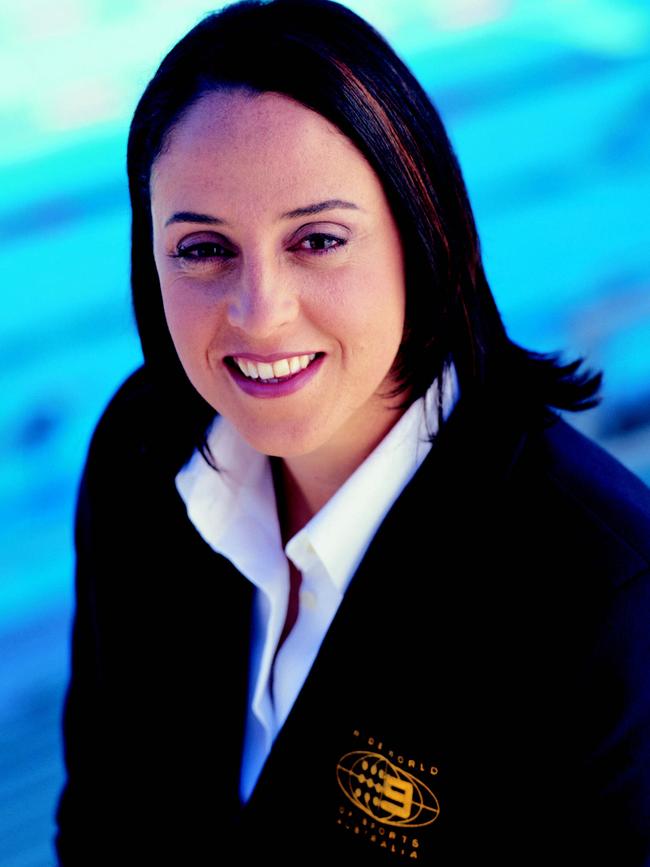
Her plan: to have her ovaries and fallopian tubes removed before menopause — an operation Livingstone bravely underwent just a little over a year ago.
“For my case, it was that I should do it at 45, because doing it any later would increase my chances for some ovarian cancers,” she says.
“So Christmas 2016, aged 45 and six months, I had my ovaries and tubes out.
“I went instantly into menopause; however, as scary as that thought was, it wasn’t enough to stop me from taking the preventive surgery that I needed to do.
“And it was also absolute relief. I remember the surgeon explained to me that it actually meant that my chance of getting ovarian cancer is now lower than the general population.
“And that empowerment is the greatest gift my mum could have given me.”
Livingstone’s twins, daughter Ella and son Joshua, 15, as well as her youngest son Robinson, 10, can all carry the gene that predisposes them to the cancer.
“In fact, I found out when I was pregnant with my twins that I carried the gene, so there was the offer that they could be genetically tested in vitro, but I decided not to do that and when they turn 18 they can find out if they carry the gene,” Livingstone says.
“But my mum got ovarian cancer when she was 65, so I don’t think there is a rush for my daughter to find out.”
Livingstone says her family tribe, including cinematographer husband Marty Smith, are pretty impressed with her new job title.
“They think it’s pretty awesome and are very aware of the AFL,” she says. “In particular, my daughter is aware of AFLW. She is a swimmer, and her twin brother is a baseball player.
“We keep joking they aren’t allowed to play football in case they hurt themselves, but I think they both closet-play it at school.”
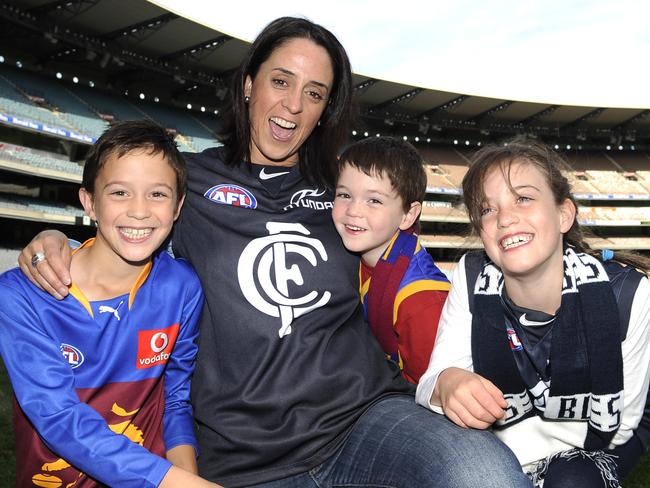
And while the AFLW is testament to the faith of the female athletes, Livingstone is crucially aware that credit must also be paid to parents as an essential part of the patchwork in the game’s evolution.
“It’s a big commitment for parents, and many inspirational women and men have helped their daughters get to where they are,” she says. “And I do want to point out, there have been some amazing men that have enabled the women to do what they are doing.
“I think of the girls who are playing now in AFLW and, with most of those cases, there has been an amazing dad or brother who have encouraged them to pursue what they are doing.
“So while there is this amazing female movement, there’s also these heroic and stoic men that have been involved with helping our girls get to where they are today.
“We need men to be advocates and supporters of this to make it work.”
If she had her time again, would we have seen Livingstone drop-punt a goal from 50m out?
“I grew up watching footy and going to the footy, but I think if you are a swimmer, you are definitely a swimmer … you are not quite as co-ordinated on dry land,” she laughs.
“But to have the opportunity to be involved in facilitating girls having this unique opportunity is something I’m really proud of.”

